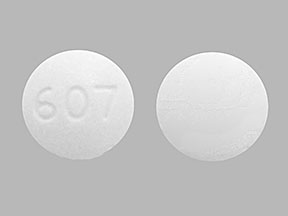
Disulfiram Coupons & Savings Card – Discount Prices from $33.59
My prescription
Edit
250MG, Disulfiram (30 Tablets)
Select pharmacy

CVS
$36.65
COUPON PRICE
Walgreens
$33.59
COUPON PRICE
Walmart
$51.30
COUPON PRICE
Albertsons
$62.94
COUPON PRICEDisulfiram savings card
Show this card to your pharmacist
Walgreens
$33.59
BIN
ID
PCN
GRP
015995
LHKPU486588
GDC
DR33
Powered by
More prescriptions for alcohol dependence
More prescriptions for alcohol dependence
Disulfiram dosage forms
Dosage Quantity Price from Per unit 250MG 30 Tablets $36.65 $1.22 250MG 90 Tablets $81.34 $0.90 250MG 100 Tablets $87.46 $0.88 500MG 30 Tablets $334.54 $11.15 500MG 90 Tablets $1013.59 $11.26 500MG 100 Tablets $1126.77 $11.27
| Dosage | Quantity | Price from | Per unit |
|---|---|---|---|
| 250MG | 30 Tablets | $36.65 | $1.22 |
| 250MG | 90 Tablets | $81.34 | $0.90 |
| 250MG | 100 Tablets | $87.46 | $0.88 |
| 500MG | 30 Tablets | $334.54 | $11.15 |
| 500MG | 90 Tablets | $1013.59 | $11.26 |
| 500MG | 100 Tablets | $1126.77 | $11.27 |
Disulfiram Warnings
This medication comes with important safety information that you should be aware of before use. Below is a summary of the key warnings and precautions to help ensure safe administration:
Alcohol Interaction: Avoid consuming alcohol or alcohol-containing products (such as vinegars or cough syrups) while taking this medication, as it can cause a disulfiram-alcohol reaction. Symptoms of this reaction may include flushing, headaches, difficulty breathing, nausea, vomiting, rapid heartbeat, and chest pain. This medication should not be taken if you have consumed alcohol within the last 12 hours.
Liver Health Risks: Although rare, there is a risk of serious liver problems, including liver failure, associated with this medication. It is important to have liver function tests before and during treatment. Seek immediate medical attention if you experience symptoms like abdominal pain, yellowing of the skin or eyes, changes in stool color, dark urine, nausea, vomiting, or confusion. Individuals with a history of liver problems or those taking other medications affecting the liver should exercise caution.
Allergic Reactions: Severe allergic reactions are possible with this medication. If you have a known allergy to rubber, particularly to a chemical called thiuram found in rubber, you might be allergic to this medication as well. Discontinue use and seek medical help if you develop hives, a rash, red skin, swelling of the lips or tongue, or difficulty breathing.
Contraindications: This medication should not be used if you have recently taken metronidazole or any alcohol-containing products, or if you have severe heart conditions, a history of mental health problems like psychoses, or an allergy to thiuram derivatives found in pesticides or rubber.
Please consult your healthcare provider for more information or if you have any concerns about taking this medication. It is essential to adhere to these guidelines to prevent adverse effects and ensure safe treatment.
Disulfiram Side Effects
Common side effects:
- Drowsiness
- Tiredness
- Headaches
- Acne
- Metallic or garlic-like taste in mouth
Less common but important to monitor:
- Rash
- Itching
- Decreased sexual ability
- Vision changes
- Numbness or tingling in arms or legs
- Muscle weakness
- Mental or mood changes (agitation, confusion, extreme excitement)
Serious side effects:
- Liver problems (persistent nausea, vomiting, severe stomach or abdominal pain, dark urine, yellowing of the eyes or skin)
- Severe allergic reaction (rash, itching or swelling, severe dizziness, difficulty breathing)
Disulfiram Interactions
Interactions with high risk of serious adverse effects and should be avoided:
- Amprenavir
- Dronabinol
- Metronidazole
- Paraldehyde
Interactions with moderate risk that may require dose adjustment, closer monitoring, or timing changes:
- Secnidazole
- Tinidazole
- Tranylcypromine
Interactions with low risk that usually do not require a change in therapy:
- Anisindione
- Diazepam
- Dicumarol
- Fosphenytoin
- Isoniazid
- Omeprazole
- Phenprocoumon
- Phenytoin
- Theophylline
- Warfarin
